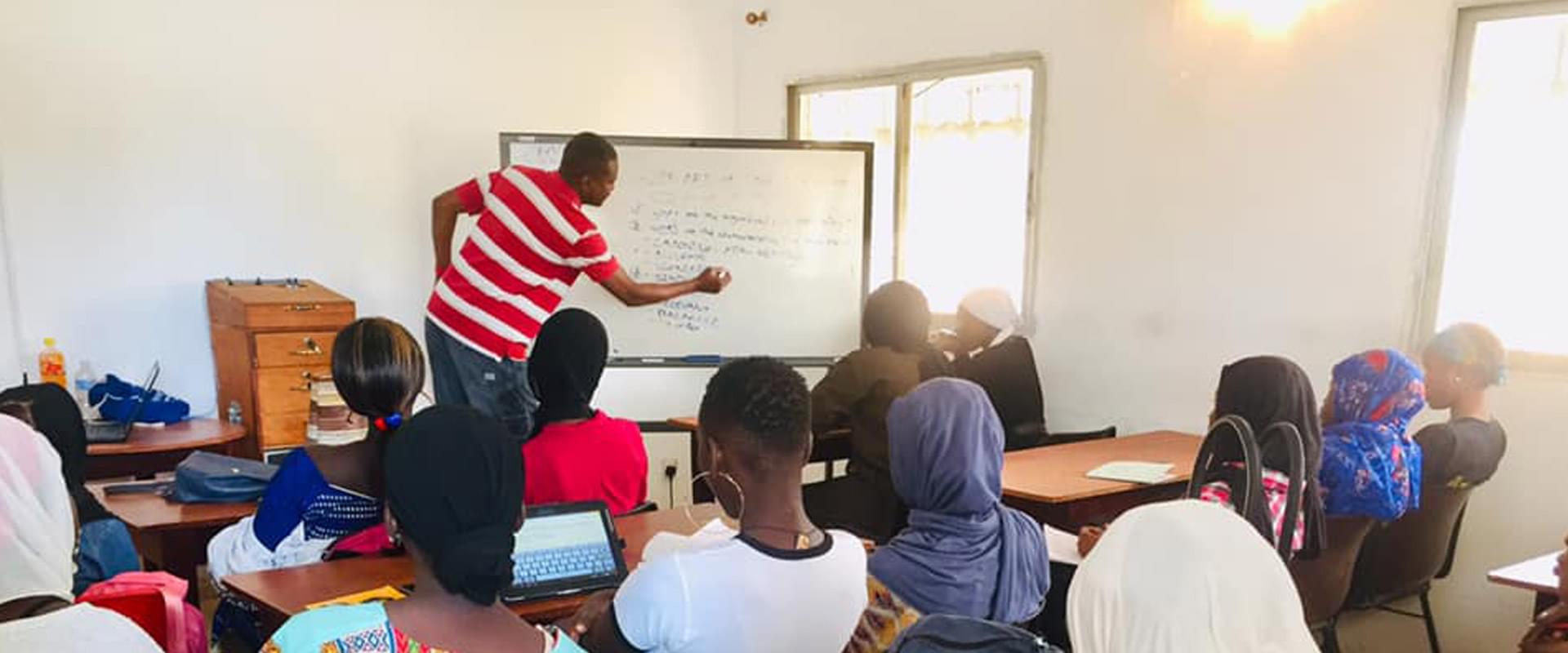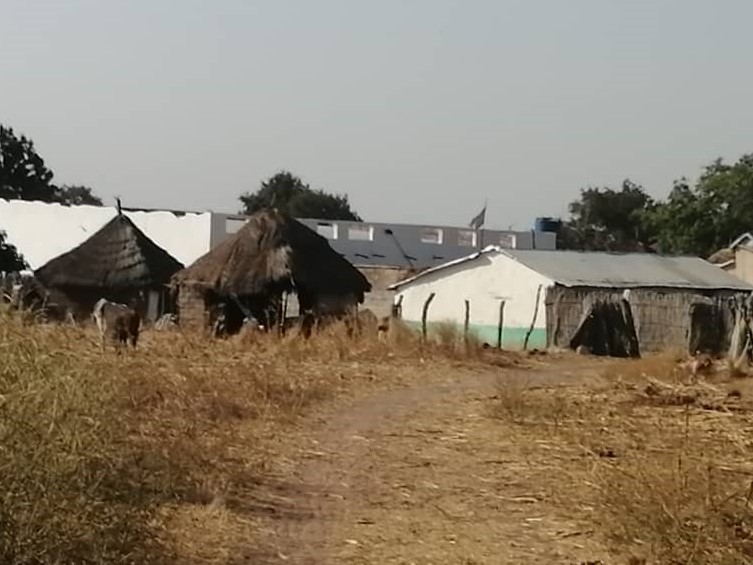
Dec 4, 2021 11:39 AM | Article By: Jarra Cham

Changai Toro village in the Sami District, Central River Region
The
residents of Changai Toro village in the Sami District, Central River Region
north (CRR/n) have called for job opportunities in the rural areas to help
retain their children to help them with their agricultural production.
Parents
in the rural areas are greatly affected by youth rural-urban migration as most
of their children migrate to urban centres in search of greener pastures; thus,
hampering rural productivity, especially on agriculture and other income
generating avenues.
This
increases the poverty in the rural areas and affects the health of parents as
they are left to do the laborious work all by themselves.
As
Gambians vote in presidential elections on December 4, parents in Changai Toro
in the Central River Region are demanding for each of the 6 presidential
candidates to address the issue by ensuring that rural youth earn a
decent living in rural areas and to help parents with agricultural
activities.
Samba
Wane, a farmer in the Central River Region whose son left for the
urban Gambia in search of greener pasture expressed concern over the
rural-urban migration syndrome, especially during the rainy season.
Samba Wane, farmer in the Central River Region
He
said the nightmare is affecting him and other farmers. “My son, who is supposed
to assist me at the farm has gone to the Kombos to acquire life skills and earn
a better living and left me alone with lots of work,” he said.
“I
have very big farms such as groundnut, maize, and millet and I am working there
alone. I was shocked when I heard he left for the urban areas.”
Rural
Gambia does not offer access to jobs and other opportunities for the youth.
Wane’s son, unable to earn a decent living in his village, sneaked out quietly
one morning.
Wane
narrated that “one day I went to his house to get him wake-up so that he would
go to the farms, but upon my arrival, his friends told me he had left for the
urban area. I was shocked and amazed.”
He
said his son’s dream is to acquire skills and to earn better. Therefore, he
said the next government should establish vocational institutes in the rural
areas to ensure the youth acquire skills in their own regions. This would solve
the rural-urban migration problem, he said. Wane now employs a labourer he pays
D20, 000 for the rainy season.
On
whether he would vote for a candidate who can solve their problem, Wane said he
would not vote for any candidate who has no solutions to their problems.
“My
candidate, if elected, would help the youths. I have listened to them
(politicians) talk and I would not vote for anyone who has no solution to our
problems. I am voting for my candidate because I’m hopeful that he has the
solution to our problems," he said without disclosing his preferred
choice.
Hardship
and poverty
Ousman
Sonko, a development specialist and a retired agriculturist, said rural-urban
migration has increased the labour intensity of parents and lowered
agricultural productivity leading to food insecurity in rural areas.
Ousman Sonko, a development specialist
He
said the deplorable living conditions of parents due to the negative
effects of the rural-urban drift has also increased hardship and poverty in
provincial communities.
“Retention
of rural youth will contribute to the development of the country, especially
the rural areas. They will provide the needed support, social protection and
security to their parents,” Sonko said.
Sonko,
who is also the Vice Principal at the Rural Development Institute in
Mansakonko, Lower River Region, said that the presence of youth in rural areas
may further provide a justification and pressure for investment into the youth
sector.
He
said such investment can significantly contribute to rural development and
by extension minimise pressure on urban infrastructure including housing,
traffic and even crime rate.
Dado
Jallow, a farmer and mother of five at Changai Toro village, saw her first son
embark on irregular migration routes, and two other sons migrated to the Kombos
in search of greener pastures.
Dado Jallow, farmer and mother of five at Changai
Toro village
With
no manpower on the farm, Jallow looks after a son in early grade and a little
daughter. “I definitely want them to stay with me and work here, but there are
no job opportunities here,” she said.
Like
Wane, Jallow too wants the next government to provide more job opportunities in
rural Gambia to minimize youth exodus. “If my sons are able to get employment
here, I would be glad,” she said .
She
also affirmed that she would not vote for any candidate who has no solution to
the problems they are facing.
According
to a case study published on “The Gneiss Blog Tumblr” in June 2015 on rural-urban migration in the
Gambia, many people are forced to move to the urban areas due to the decline in
investment in social services in the rural area and the rapidly declining rural
population.
The
findings of the study also stated that decentralisation of services to the
rural areas would help to support people in the long term to improve the
quality of life of the rural dwellers and help them become
self-sufficient.
What
manifestoes do candidates offer?
The
National People’s Party manifesto promised that an NPP-led government would
encourage and support improved agricultural productivity and livestock
production.
“As
an NPP Government, we plan to unfold and implement a massive mechanisation
plan. Farmers require more support, and we guarantee that this will be
executed,” it stated.
The
Turnaround Movement of the independent candidate Essa Mbye Faal states
that their government would shift from subsistence farming to boost food
production by establishing a thriving agricultural sector with potential to
produce a large, diverse food basket to ensure food security and provide
“sustainable employment in ten years”.
Mama
Kandeh’s Gambia Democratic Congress promises “sound economic policies” in
agriculture, tourism and fisheries development.
The
United Democratic Party wants to tap into Gambia’s “huge untapped potentials in
the agricultural sector”, which can improve the lives of the people, increase
their food security, improve the nutritional standards for all ages, create
employment for both rural and urban populations, and drives the national
economy through linkages to other sectors.
The
“Transformative Agenda 2021” of the PDOIS states that production-based welfare
would be linked to consumption-based welfare enabling individual income and
community income to rise proportionately to facilitate availability and
affordability of food, to promote general welfare of both rural and urban dwellers.
While
manifestoes for parties and candidates intend to tackle rural development
issues that may help tackle rural-urban migration, they have not made it a top
priority. The agricultural development plans are meaningless if there are
no youth to work on the farms.
Comments (0)
158 Likes
Leave your thought here
Your email address will not be published. Required fields are marked *